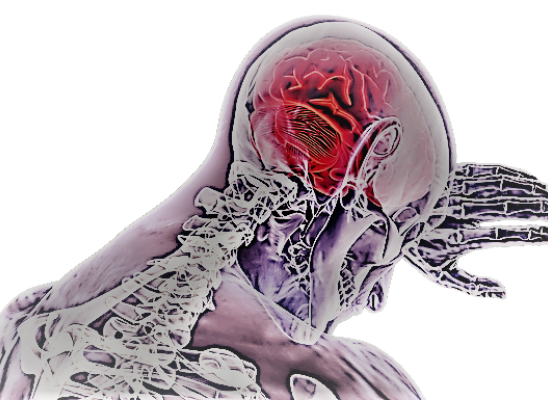When Self-Help Isn't Enough: How to Know When It’s Time for a Therapist

Online test
Find out the severity of your symptoms with this free online test
For some people living with trichotillomania, commonly referred to as “trich” or hair pulling, self-help strategies can be a powerful tool for managing the urge to pull and feeling a sense of control. However, whether self-help is enough depends on your unique situation and how your hair pulling manifests.
Trich is a mental health disorder with complex neurological, psychological, and behavioral factors. More often than not, self-help simply isn’t enough to fully address the underlying dynamics, and professional support is necessary to break free from the cycle of pulling. Knowing when self-help is enough or if you might need more than what self-help can offer is crucial in creating a successful plan for managing your hair pulling.
When Self-Help Is Appropriate
Self-help is, simply put, using your own efforts and resources to cope with life problems rather than seeking out professional sources. Self-help might include using books, websites, online forums, habit trackers, apps, fidgets, and more.
Self-help strategies can be very helpful, especially if the hair pulling is mild, and the person is highly motivated to make changes. Some situations where self-help might be enough include:
- You can recognize and manage triggers on your own
- You have found behavioral strategies that work for you
- Your hair-pulling does not severely impact your daily life
The downside to self-help is that most self-help tools are mass produced and not tailored to your particular needs. And you’re applying them on your own and for some people that can be overwhelming.
When Self-Help Isn’t Enough
While self-help can be effective for some, there are times when it is simply not enough to manage your trich. Signs that self-help may not be working include:
Your Hair Pulling Is Severe, Persistent, Or Worsening
If you’ve tried self-help and still find yourself pulling, experiencing noticeable hair loss, your urges feel uncontrollable, or you’re struggling with daily functioning, it may be time to seek professional help. A therapist who specializes in treating hair pulling can provide guidance and strategies that self-help alone cannot.
Your Emotional Well-Being Is Suffering
Managing trich can be exhausting, and it’s easy to get frustrated or overwhelmed when self-help efforts don’t seem to be helping. Feelings of shame, guilt, anxiety, or depression are common, and the emotional distress can be quite intense. If you feel stuck, discouraged, or overwhelmed, there may be deeper issues that need to be addressed. A therapist can help you explore and address these issues in healthy ways.
You’re Engaging in Harmful or Risky Behaviors
Some people with trich can experience physical issues related to the pulling such as skin/scalp damage or infections. They may engage in self-destructive behaviors such as ingesting hair that’s been pulled, a phenomenon known as trichophagia. In severe cases, trichophagia can cause life-threatening blockages that require immediate intervention. If your hair pulling behavior is causing physical harm, professional intervention is imperative.
How to Know When It’s Time for a Therapist
Choosing to see a therapist is a very personal choice. You know self-help isn’t working. But how do you know it’s time for a therapist?
Signs that it’s time to consider therapy might include:
- You’ve tried self-help methods for months without improvement.
- Your pulling has gotten worse.
- You’re avoiding certain social situations or activities due to shame or embarrassment.
- Your urges leave you feeling out of control.
- You’re experiencing significant emotional distress, anxiety, or depression.
- You have physical complications from pulling.
Therapy can be a proactive and empowering step towards healing and recovery.
What Therapy Can Offer You
A therapist trained in the assessment and treatment of body-focused repetitive behaviors (BFRBs) like hair pulling can provide evidence-based treatments such as:
- Cognitive Behavioral Therapy (CBT) – CBT is a therapeutic approach that focuses on a person’s thoughts, feelings and behaviors. You can learn how to identify and change thought patterns that contribute to your hair pulling.
- Habit Reversal Training (HRT) – HRT is a specific type of CBT that focuses on learning alternative behaviors to replace hair pulling.
- Medication Support – While there’s no FDA-approved medication for trich, some medications may help reduce compulsive urges in some individuals.
Self-Help or Therapy? Maybe Both.
Self-help can be a great starting point for managing trich, but it’s not always enough. Seeking therapy can be the perfect next step towards healing and recovery. Professional help can give you the additional tools and support you need to make the progress you seek. If you find yourself wondering whether therapy might be the next step, reach out to a therapist and have the conversation. It just might be the step you need to continue your healing journey.
References
1. Expert Consensus Treatment Guidelines for Trichotillomania, Skin Picking And Other Body-Focused Repetitive Behaviors. (n.d.). arfamiliesfirst.com. https://arfamiliesfirst.com/wp-content/uploads/2016/05/Trichotillomania-ExpertGuidelines_000.pdf
Online test
Find out the severity of your symptoms with this free online test
Start your journey with TrichStop
Take control of your life and find freedom from hair pulling through professional therapy and evidence-based behavioral techniques.
Start Now



